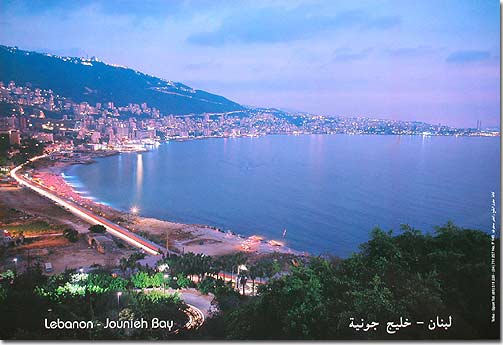 By KATHERINE ZOEPF, BEIRUT,Lebanon
By KATHERINE ZOEPF, BEIRUT,Lebanon
“The demographic reality is truly alarming,” Professor Khalaf said. “There are no jobs for university graduates, and with the boys leaving, the sex ratios are simply out of control. It is now almost five to one: five young girls for every young man. When men my sons’ age come back to Lebanon, they can’t keep the girls from leaping at them.”
For the men, who return with deep pockets and high spirits, the holiday welcome is gratifying.
“In Doha it is completely impossible, because you can’t talk to women in the gulf,” said Wisam Hamdan, 35, back from Qatar, where he manages hairdressing salons. “But Lebanese girls are very friendly. I am hoping to meet lots of girls, and then I will pick one.”
The other night Roula Hallak, 27, was wandering the bars of Gemmayzeh, an eastern Beirut neighborhood, with a troupe of six meticulously dressed and made-up girlfriends.
“I’m not looking, but she is, and so is she,” Ms. Hallak said, poking two of them, who giggled and declined to give their names. “It’s so hard to meet the perfect guy this way, but there are so many out in Beirut at this time of year. You go out and you look and you’re always hoping.”
According to Professor Khalaf, Lebanese Christians have been migrating for economic reasons since Ottoman times. But as the nation’s economic crisis has deepened, the exodus has come to include young men from all religious groups and across the socio-economic spectrum, as well as a tiny but growing number of young women.
Over the last two decades, the Persian Gulf has become the economic pole, and its pull has only grown stronger since the monthlong war this summer between Israel and the Hezbollah militia in Lebanon. With the political situation here still so uncertain, investment and work opportunities are growing even scarcer, and the gender imbalance worsens.
For young women here, dressing fashionably is a competitive game; stare-down contests between young women in restaurants and malls are common, particularly, say the girls, when one of the women is accompanied by an attractive Lebanese man.
Kareen Yazbek, a Beirut psychologist, says that the lack of available men is a constant theme in her discussions with young women recovering from depression and drug addiction.
“Throughout my practice, the main issue that comes up with many young women is that they can’t find anyone to be with or to marry,” Ms. Yazbek said. “Among college-age girls it’s not such a problem, but after graduation there’s a big change as the men start seeking work outside of Lebanon.”
“The social pressures on young women are just huge,” Ms. Yazbek continued. “The focus is more and more on being beautiful, on pleasing other people. The competition is intense, conformity is a big thing, and everyone, rich and poor, gets plastic surgery. You can go to parts of Beirut where almost every young woman has the same little nose.”
And the big prize, all seem to agree, is the attention of one of the visiting native sons.
“The guys that remain in Lebanon are the stupid ones!” exclaimed Nayiri Kalayjian, 19, who was hitting the bars on Monot Street, in central Beirut, with three girlfriends.
“We’re too good for them,” she said. “The ones who remain in Lebanon are the ones with closed mentalities, the ones who just want a virgin girl. You start to feel that the men who stay in Lebanon are the ones with no ambition in their work, and so you wonder, why are they still here?”



